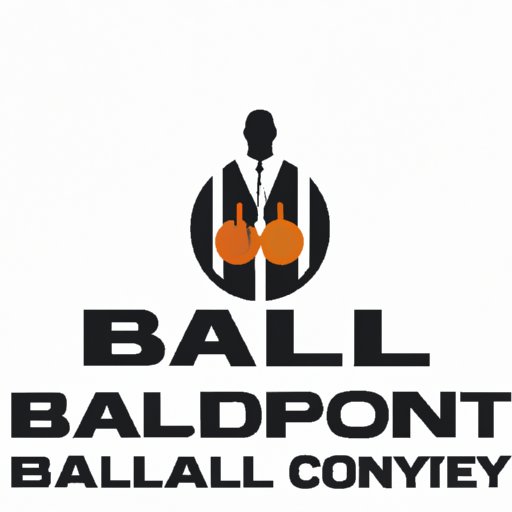Introduction
A bail bondsman, also known as a surety agent, is an individual who provides a guarantee to a court that an arrested person will appear in court when required. The bail bondsman is responsible for ensuring the accused has access to their financial freedom after being released from jail. This article explores how a bail bondsman makes money by examining the fees associated with providing a bond, the impact of collateral on a bondsman’s profits, and the implications of state and local regulations.

Exploring the Role of a Bail Bondsman in Securing Financial Freedom
When an individual is arrested, they may be eligible to post bail in order to secure their release from jail. Bail is an amount of money set by a court that must be paid in order for an individual to be released from jail pending trial. In some cases, an individual may not have the funds necessary to pay the bail amount, which is where a bail bondsman comes in. A bail bondsman can provide a guarantee to the court that the accused will appear in court when required in exchange for a fee.
When an individual works with a bail bondsman, the bondsman typically charges a non-refundable fee of 10-15% of the total bail amount. This fee is the bond premium, and it is used to cover the cost of issuing the bond. In addition to this fee, the bondsman may also require collateral in order to secure the bond. Collateral is an asset or property that is pledged as security for a loan or debt. The bondsman may use the collateral to recoup any losses if the accused fails to appear in court when required.

Understanding the Financial Benefits of Working with a Bail Bondsman
There are several financial benefits to working with a bail bondsman. First and foremost, it allows an individual to secure their freedom without having to pay the full amount of the bail. This can save an individual or their family significant amounts of money. Additionally, working with a bondsman often results in a quicker release from jail, as the process of posting bail can sometimes take days or weeks.
Examining the Fee Structure of a Bail Bond Company
When working with a bail bond company, there are several fees that may be charged. The most common fee is the bond premium, which is typically 10-15% of the total bail amount. This fee is non-refundable, and it covers the cost of issuing the bond. In addition to the bond premium, a bail bond company may also charge additional fees such as administrative fees and service fees.
The cost of a bail bond can also vary depending on several factors. These include the severity of the crime, the amount of the bail, the length of time the bond is in effect, and the creditworthiness of the accused. Additionally, the cost of a bond may also vary by state or locality, as some states and localities have different regulations regarding bail bonds.
The Impact of Collateral on a Bail Bondsman’s Profits
Collateral plays an important role in a bail bondsman’s ability to make money. When working with a bail bond company, the bondsman may require collateral in order to secure the bond. This collateral can be cash, real estate, jewelry, vehicles, or other assets. The value of the collateral must be equal to or greater than the amount of the bond.
Collateral is important because it ensures the bondsman will be able to recoup any losses if the accused fails to appear in court when required. If the accused fails to appear, the bondsman can seize the collateral and use it to cover any losses. This can help to maximize a bondsman’s profits.

Exploring the Implications of State and Local Regulations on Bail Bond Companies
State and local regulations can have a major impact on a bail bond company’s ability to make money. Each state and locality has its own laws and regulations regarding bail bonds, and these regulations can affect the fees that a bondsman can charge, the types of collateral that can be accepted, and the amount of the bond. Understanding the various state and local regulations is essential for a bail bondsman to be successful.
In addition to state and local regulations, a bail bond company must also comply with federal regulations. Federal regulations can affect the types of bonds a bondsman can issue, the amount of the bond, and the requirements for collateral.
Conclusion
In conclusion, a bail bondsman makes money by charging a fee for providing a bond and by requiring collateral to secure the bond. The cost of a bond can vary depending on several factors, including the severity of the crime, the amount of the bail, and the creditworthiness of the accused. Additionally, state and local regulations can have a major impact on a bail bond company’s ability to make money. Understanding the various regulations and properly managing collateral can help a bail bondsman maximize their profits.
(Note: Is this article not meeting your expectations? Do you have knowledge or insights to share? Unlock new opportunities and expand your reach by joining our authors team. Click Registration to join us and share your expertise with our readers.)
